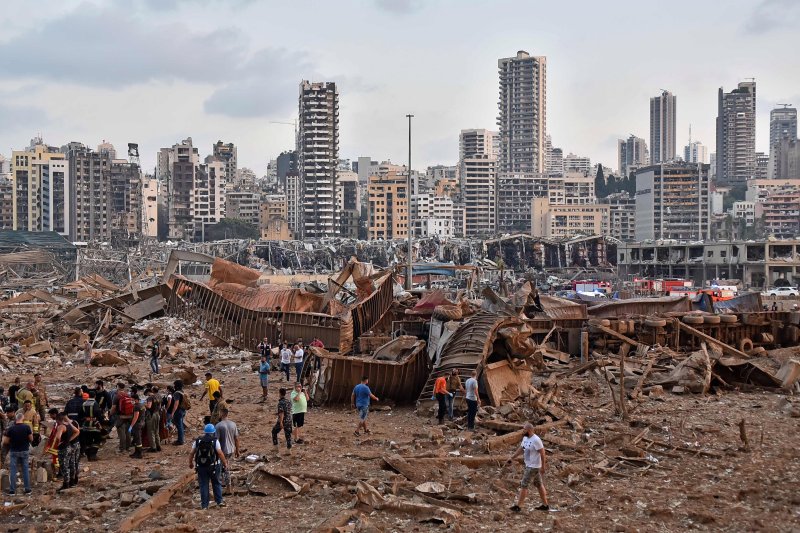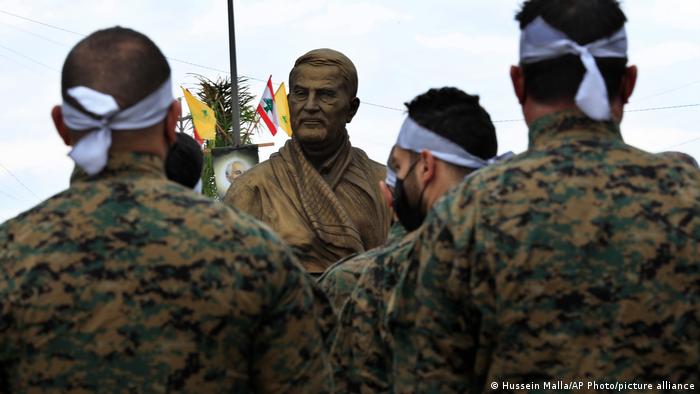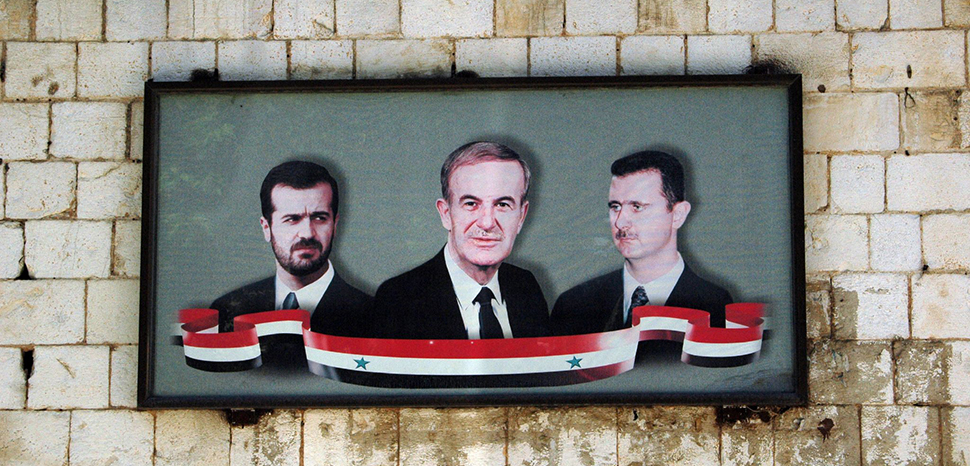
BEIRUT Associated Press writers Kareen Chehayeb and Lujain Jo — Families of some of the victims of Beirut’s deadly port blast have filed a $250 million lawsuit against an American-Norwegian firm suspected of involvement in bringing the explosive material to the port, a Swiss foundation announced Wednesday. Accountability Now, which says its mission is to support Lebanese civil society efforts to put an end to the impunity of the country's leaders, said the lawsuit was filed Monday. There are nine plaintiffs who are either Americans or relatives of an American, the group said. The move comes as a domestic investigation in Lebanon has been stalled since December, following legal challenges brought by officials wanted for questioning against the investigative judge working on the case. Hundreds of tons of ammonium nitrate, a highly explosive material used in fertilizers that had been improperly stored in the port for years, exploded on Aug. 4, 2020 killing nearly 220 people, injuring over 6,000 others and causing damage worth billions of dollars.
The Lebanese probe shows that most government officials knew of the dangerous material stored at the port. The blast worsened the country’s economic meltdown rooted in decades of corruption and mismanagement that began a year earlier. Accountability Now said the $250 million lawsuit filed in Texas names U.S.-Norwegian geophysical services group TGS, which owns the British firm Spectrum Geo, saying it had entered into a series of “highly profitable but suspicious contracts with the Ministry of Energy in Lebanon.” It added that in 2012, Spectrum chartered the Moldavian flagged vessel Rhosus to come to Beirut while carrying 2,750 tons of ammonium nitrate on board. “This claim will force TGS to disclose Spectrum’s communications with various third parties who are all relevant to the investigations in Lebanon,” said Zena Wakim, a lawyer for Accountability Now who assisted the plaintiffs.

by Associated Press -- BEIRUT - The leader of Lebanon's militant Hezbollah group threatened Israel with military escalation Wednesday if a future deal over the disputed maritime border between the two countries is not in Lebanon's favor. Sayyed Hassan Narallah said in a televised speech that Lebanon should be able to extract oil and gas in Lebanese waters. He warned that sending unarmed drones over the Karish gas field in the Mediterranean earlier this month was "a modest beginning to where the situation could be heading." On July 2, the Israeli military said it shot down three drones before Hezbollah issued a statement saying they were unarmed and were sent on a reconnaissance mission. "The mission was accomplished and the message was received," a Hezbollah statement said at the time.
Israel and Hezbollah are bitter enemies that fought a monthlong war in the summer of 2006. Israel considers the Iranian-backed Lebanese group its most serious immediate threat, estimating it has some 150,000 rockets and missiles aimed at Israel. "The message of the drones meant that we are serious and we are not after a psychological war but we are gradually moving in our steps," Nasrallah said, adding that Lebanese officials should take advantage of his group's strength to use it in indirect talks. Nasrallah added that "whatever we are supposed to do, we will without any hesitation. This message was understood by the Israelis and by the Americans." Nasrallah's refused to comment on the Lebanese caretaker prime minister's criticism of Hezbollah for sending the drones. Najib Mikati said at the time it was an unnecessarily risky action. "Whether our message was understood in Lebanon or not, we don't care about that. What is important for us is that the enemy gets the message," he said.

by ansamed.info -- BEIRUT - A fire broke out on Tuesday in Beirut inside of what remains of grain silos destroyed by a devastating explosion in the port of the capital two years ago, according to eyewitnesses and Lebanese media. A column of smoke was reported to be rising from inside the silos, where the remains of grain - now spoilt and fermenting - have been left for two years. The cause of the flames is unclear. Families of the victims have told media outlets that they are afraid that it may be a case of arson intending to destroy what remains of the silos, which over time have become a true symbol of the August 4, 2020 disaster in which over 250 people died, over 6,000 were injured, and 330,000 were forced to leave their homes.
On August 4, 2020, some 2,750 tons of ammonium nitrate exploded in Beirut's port after being left in unsafe conditions by Lebanese authorities for over six years in one of the port hangars. The tall grain silos, visible from every side of the Beirut seafront, protected part of the city from the devastating effects of the explosion, which experts rank among the 10 more powerful non-nuclear explosions in history. After the August 4 disaster, which occurred amid the worst economic and political crisis in Lebanese history, the entire political class was blamed by the victims' families and by broad swaths of public opinion. Massive street protests had already begun periodically starting in 2019 against corruption and bad government.

By Julian McBride -- Geopoliticalmonitor.com -- Lebanon was once known as the most prosperous nation in the Middle East to emerge from the post Sykes-Picot map, despite the inherent flaws in the Levantine nation. Heightened sectarian disputes, economic inequality, pan-Arabist nationalism, and regional disputes would eventually lead to the extremely brutal 15-year Lebanese Civil War, a conflict that killed 150,000 civilians and combatants. Dozens of militias, all attached to various ideologues, took part in hundreds of armed clashes, some of which pitted former neighbors against each other. Several countries played a major role in the carnage, such as Israel and Syria, with the latter ultimately enacting a 30-year occupation of Lebanon.
The three-decade Syrian occupation was quite brutal. The “elections” that took place were nothing more than a sham with handpicked people to lead a corrupt government. There were assassinations of key political figures and mass detention of political dissidents without due process, which happened quite frequently. To this day the fate of hundreds of Lebanese in Syrian prisons remains ambiguous and quite frightening given Syria’s Baathist Party methods of torture and abuse.
Khazen History


Historical Feature:
Churches and Monasteries of the Khazen family

St. Anthony of Padua Church in Ballouneh
Mar Abda Church in Bakaatit Kanaan
Saint Michael Church in Bkaatouta
Saint Therese Church in Qolayaat
Saint Simeon Stylites (مار سمعان العامودي) Church In Ajaltoun
Virgin Mary Church (سيدة المعونات) in Sheilé
Assumption of Mary Church in Ballouneh
1 - The sword of the Maronite Prince
2 - LES KHAZEN CONSULS DE FRANCE
3 - LES MARONITES & LES KHAZEN
4 - LES MAAN & LES KHAZEN
5 - ORIGINE DE LA FAMILLE
Population Movements to Keserwan - The Khazens and The Maans
ما جاء عن الثورة في المقاطعة الكسروانية
ثورة أهالي كسروان على المشايخ الخوازنة وأسبابها
Origins of the "Prince of Maronite" Title
Growing diversity: the Khazin sheiks and the clergy in the first decades of the 18th century
Historical Members:
Barbar Beik El Khazen [English]
Patriach Toubia Kaiss El Khazen(Biography & Life Part1 Part2) (Arabic)
Patriach Youssef Dargham El Khazen (Cont'd)
Cheikh Bishara Jafal El Khazen
Patriarch Youssef Raji El Khazen
The Martyrs Cheikh Philippe & Cheikh Farid El Khazen
Cheikh Nawfal El Khazen (Consul De France)
Cheikh Hossun El Khazen (Consul De France)
Cheikh Abou-Nawfal El Khazen (Consul De France)
Cheikh Francis Abee Nader & his son Yousef
Cheikh Abou-Kanso El Khazen (Consul De France)
Cheikh Abou Nader El Khazen
Cheikh Chafic El Khazen
Cheikh Keserwan El Khazen
Cheikh Serhal El Khazen [English]
Cheikh Rafiq El Khazen [English]
Cheikh Hanna El Khazen
Cheikha Arzi El Khazen
Marie El Khazen